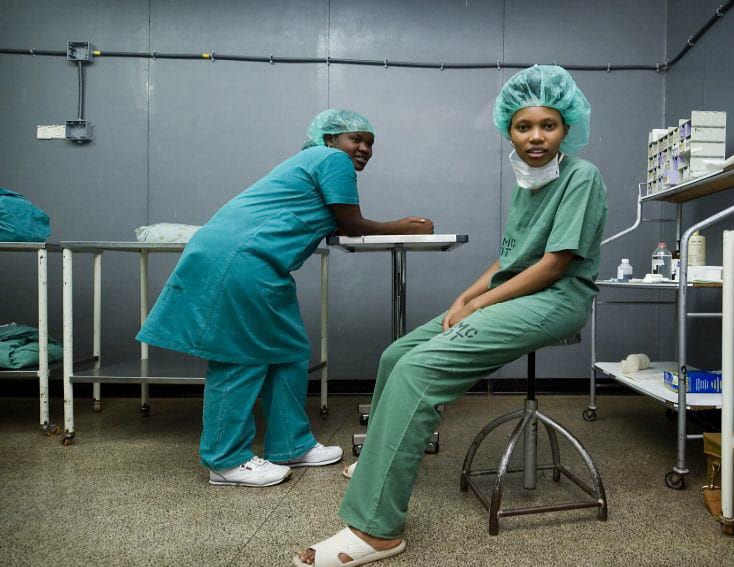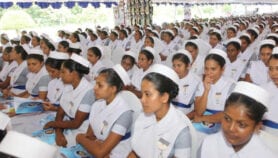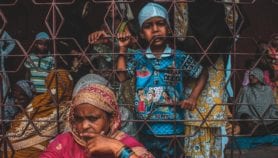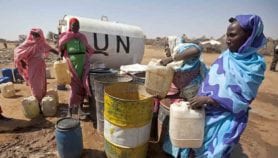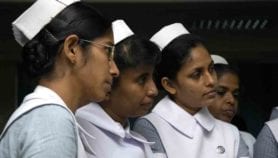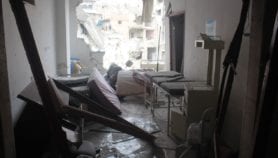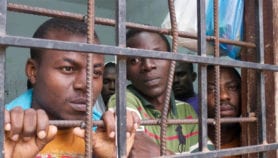By: Henrietta Miers
Send to a friend
The details you provide on this page will not be used to send unsolicited email, and will not be sold to a 3rd party. See privacy policy.
One in eight of all Sub-Saharan African graduates emigrated between 2000 and 2010, according to new research — a higher proportion than in any other region in the world. [1] But these numbers do not tell the whole brain-drain story. Less well-known is a trend in which qualified female migrants compromise their careers when they move abroad. Most research on female migrants focuses on lower skilled work like domestic labour. The subject of high-skilled migration needs more scrutiny.
Today women make up almost half of international migrants, and female professional migrants outnumber men in some parts of the world. [2] There has been a dearth of information on skilled female migrants — until now. The recent OECD (Organisation for Economic Co-operation and Development) data goes some way to addressing this: we learn that the proportion of highly educated female immigrants from Sub-Saharan Africa living in OECD countries has risen from 30 per cent in 2000/02 to 34 per cent in 2010/11.
“One physician had to wait ten years to learn the language, discharge her childcare responsibilities and get her qualifications recognised.”
Henrietta Miers
Many of these women work in the health sector, particularly as nurses. In the UK, the number of female migrant nurses rose by 49,000 (or 92 per cent) between 1997 and 2004, compared with an increase of one per cent in non-migrant nurses. [4]
There is scant research on the lives of these female professionals once they reach their host country. What we do know indicates that, despite their qualifications, their experiences can be far from positive.
A study done between 2011 and 2012 is a case in point. Researchers interviewed 88 women from Sub-Saharan Africa in five destination countries. [5] They found that, of the 34 female nurses and physicians who were interviewed, almost none were able to work as health professionals in the short term, and many in the long term, too. Some had to wait up to a year to register to practise as a physician or nurse. One physician had to wait ten years to learn the language, discharge her childcare responsibilities and get her qualifications recognised —and then she faced three years of retraining.
Many had to ‘deskill’ — for example the physician who settled in the UK and worked as a care worker for four months while her references were checked. Some felt such humiliation that they gave up any idea of working. Some reported double discrimination based on both gender and race.
Other research confirms these negative trends. The sociologist Fumilayo Showers recently produced a dissertation drawing on 55 interviews with female African immigrant nurses in the United States, and a small sample of African male nurses to “understand the particular gendered dynamics at play”. [6] She found that, in the workplace, female nurses suffered the triple burden of being black, being female and coming from Africa. They said their competencies were often questioned by co-workers, patients and patients’ families.One reason for female migration is to enjoy greater rights in the host country. The question is, how much greater are they?
More analysis of female migration and migrants’ experiences is needed. Meanwhile, host countries should devise policies such as swift recognition of qualifications from overseas— so that when highly skilled female migrants arrive they can put those skills to good use.
Henrietta Miers has worked across Africa and Asia as a gender and social development consultant for 20 years, specialising in gender policy. She is senior associate of WISE Development, a consulting company that focuses on boosting economic opportunities for poor women.
References
[1] Connecting with Emigrants: A Global Profile of Diasporas (OECD, 2015)
[2] Population Facts (UN, 2013)
[4] Skilled female labour migration (focus Migration, 2009)
[5] Sylvia Wozkjewski and others African female physicians and nurses in the global care chain: qualitative explorations from five destination countries (PLOS One) [6] African immigrant nurses in the United States (Dissertation Reviews, 2015)


